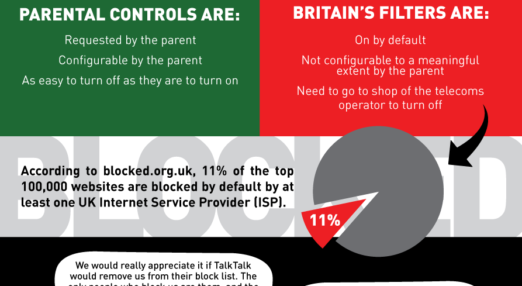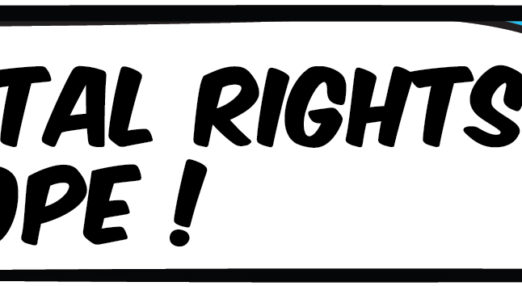blocking
Filter by...
-

Italian Constitutional Court avoids decision on blocking
On 3 December 2015, the Italian Constitutional Court was asked to decide on the constitutionality of a law giving the authority to the Italian Communication Authority (AGCOM) to regulate on Copyright enforcement measures (the national law transposing the e-commerce Directive). Previously, on 26 September 2014, an Italian regional administrative tribunal (TAR Lazio) referred the question […]
Read more
-

German Supreme Court rules in favour of “blocking” websites
In a decision from 26 November 2015 the German Supreme Court in Karlsruhe ruled in favour of the “blocking” of websites. The Court came to this decision after dealing with two separate cases concerning websites that contained links to unauthorized music downloads. Firstly, the German music rights group Gema asked the Internet Service Provider (ISP) […]
Read more
-

A new wave of Internet blocking in Turkey
On 25 July, the Turkish government ordered the blocking of 65 popular dissident and Kurdish websites and temporarily slowed down Twitter and Facebook access. This follows the government’s air attack against the Islamic State (Isis) and Kurdish forces in Syria. A few days earlier, Twitter was blocked entirely for a few hours. On 20 July, […]
Read more
-

Turkey blocks political websites
Engelli Web is an independent monitoring website that lists websites blocked by the Turkish government. Currently it lists over 80 000 domains and the number keeps rising. The real figure is probably much higher, because the government does not disclose the exact list of banned sites. Although the majority of the sites are blocked on […]
Read more
-

Parental Controls: Lawless blocking/filtering as part of “net neutrality”?
At the request of the United Kingdom, the Council of the European Union, the European Commission and European Parliament appear ready to adopt – in the context, ironically, of measures that are supposed to protect net neutrality – provisions which are meant to allow UK-style blocking and filtering across Europe. This approach was opposed in […]
Read more
-

Austrian Internet users to pay for intransparent web blocking scheme
On 27 March 2014, the European Court of Justice (CJEU) ruled that national jurisdiction can order an injunction against an Internet Service Provider (ISP) requiring it to restrict its customers from accessing a website that is placing protected content online without the consent of the rights holder. Since last year, Austrian ISPs have thus started […]
Read more
-

Yet another internet blocking law in Turkey
This article is also available in: Deutsch: Neues Gesetz über Internetsperren in der Türkei In recent years, online censorship and the deteriorating situation regarding the freedom of speech has raised serious concerns in Turkey. The large majority of the traditional mainstream media is either directly or indirectly under the government control, and the Internet remains one […]
Read more
-

Danish court orders a UK company to block Danish IP addresses
In Denmark, and in most other EU member states, furniture design is protected by copyright for 70 years from the death of the designer. However, a few member states have shorter protections for furniture. In the United Kingdom, for example, Article 52 of the Copyright Designs and Patents Act of 1988 limited the protection for […]
Read more
-

Irish ISP introduces child porn blocking – doesn’t know why
The Irish broadband provider UPC has introduced blocking for web addresses that are alleged to contain child abuse material. It chose an interesting moment to do this – with the total number of domains allegedly hosting abuse material half what it was ten years ago and with sites staying online for historically short periods of […]
Read more
-

Obama urges the FCC to adopt rules to ensure net neutrality
In a speech on 10 November, US President Barack Obama made a strong statement calling for net neutrality. He urged the Federal Communications Commission (FCC) to adopt rules to prevent Internet access providers from blocking or slowing down content, and from charging service providers to let them use a “fast lane” to reach their clients. […]
Read more
-

The Turkish government tightens its grip over the Internet
On 8 September 2014, the Turkish parliament passed an amendment to the already draconian Internet law. The amendment allows the Turkish Telecommunication Authority (TIB) to block (without a court order) any website that appears to threaten “national security or public order”. Internet Service Providers (ISPs) are required to execute the blocking order of the TIB […]
Read more
-

Almost one in five sites blocked by filters in the UK
EDRi member Open Rights Group’s (ORG) Blocked project reveals that nearly one in five of the most popular websites are blocked by at least one of the “voluntary” filters implemented by Internet Service Providers (ISPs) in the United Kingdom when strict filtering settings are used. The UK ISPs filter and block the sites by default. […]
Read more
